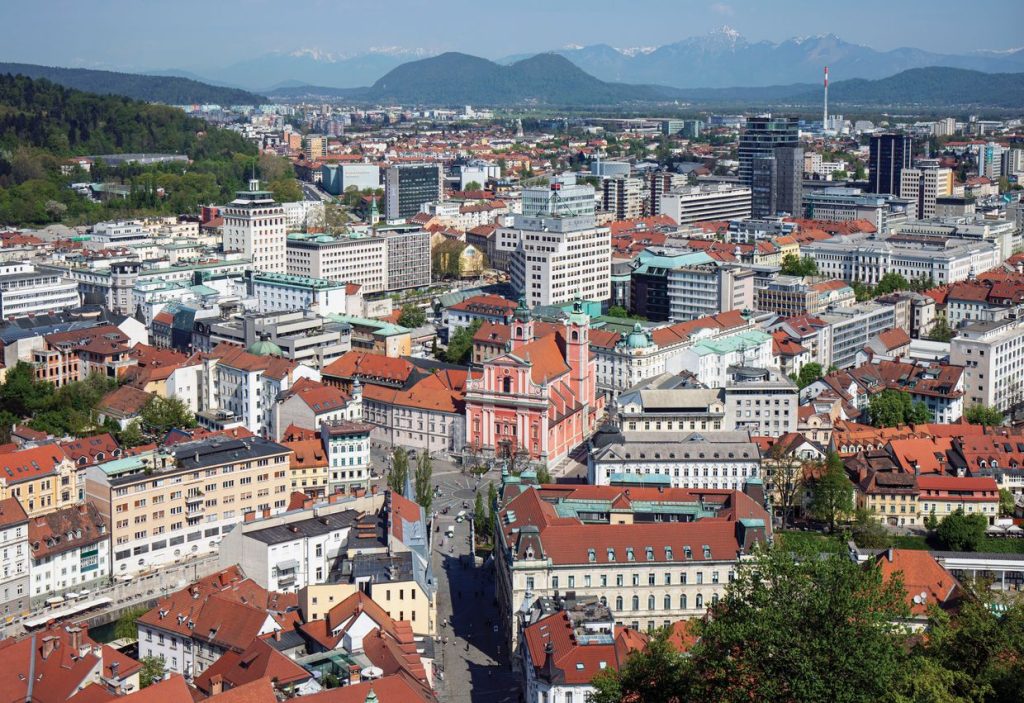Slovenia recently began receiving natural gas from Azerbaijan in an effort to diversify away from Russian supplies. In 2020, 81% of Slovenia’s natural gas imports came from Russia, making it heavily reliant on Russian gas. This new agreement with Azerbaijan allows for a more secure supply of gas for Slovenia, especially as winter approaches. The partnership between Azerbaijan’s state-controlled fuel company SOCAR and Geoplin, the largest natural gas company in Slovenia, aims to further develop long-term energy cooperation. Slovenia is now the ninth European country to receive Azerbaijani gas, joining Turkey, Georgia, Italy, Greece, Bulgaria, Romania, Hungary, and Serbia in diversifying energy sources away from Russia.
Despite efforts to reduce dependency on Russia’s gas, European countries still rely on Russian imports. European Commission President Ursula von der Leyen signed a deal with Azerbaijani President Ilham Aliyev to increase imports of Azeri natural gas to at least 20 billion cubic meters annually by 2027. Aliyev confirmed that discussions have taken place with Kyiv and Brussels about supplying natural gas to Europe via Ukraine once the existing contract with Russia expires in 2024. While Russia has cut off much of its gas transit to Europe, countries like Austria, Hungary, and Slovakia remain heavily dependent on Russian imports. Aliyev warned that these countries could face serious trouble if Russian gas transit through Ukraine is halted.
The recent sanctions imposed by Ukraine against Lukoil do not impact the current transit of oil through the Druzhba pipeline, as Lukoil is not the official owner of the oil. This information was confirmed by the European Commission, indicating that the sanctions have not disrupted oil transit through the pipeline. Despite efforts to reduce reliance on Russian gas, European countries are still grappling with the challenges of diversifying energy sources and ensuring secure and stable supplies. The situation highlights the complexities of the energy market and the geopolitical implications of energy dependence on certain countries.
The diversification of natural gas supplies to Slovenia from Azerbaijan is part of a broader trend in Europe to reduce dependency on Russian energy sources. The conflict in Ukraine and ongoing tensions between Russia and Western countries have heightened the urgency of finding alternative energy sources. By expanding partnerships with countries like Azerbaijan, European nations aim to enhance their energy security and decrease reliance on Russian imports. The shifting dynamics of the energy market in Europe reflect the geopolitical tensions and strategic considerations at play as countries navigate the complex landscape of energy security and independence.
As European countries continue to navigate the challenges of reducing dependence on Russian gas, partnerships with countries like Azerbaijan play a crucial role in diversifying energy sources. The agreement between SOCAR and Geoplin to supply natural gas to Slovenia represents a step towards enhancing energy security in the region. By expanding partnerships beyond Russia and exploring alternative supply routes, European countries seek to mitigate the risks associated with overreliance on a single energy supplier. The ongoing efforts to diversify energy supplies highlight the importance of collaboration and strategic planning in ensuring stable and secure access to natural gas in the face of geopolitical uncertainties.


